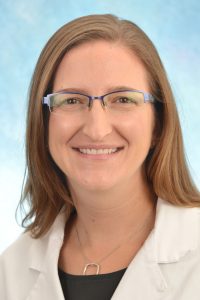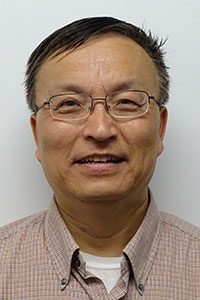UNC Department of Surgery Faculty members Katharine McGinigle, MD, MPH, and Xianwen Yi, MD, PhD, received grants from the North Carolina Translational and Clinical Sciences Institute.

Katharine McGinigle, MD, MPH, is an Assistant Professor of Surgery in the Division of Vascular Surgery and the Surgical Director of the Enhanced Recovery After Surgery program. She, along with her colleague, Michael Kosorok, PhD, W. R. Kenan, Jr. Distinguished Professor in the Department of Biostatistics in The Gillings School of Public Health, was awarded a TraCS $5K – $50K Translational Research Matched Pilot Grant. They will use their $39,000 grant for their project titled, “Using Precision Medicine to Define Adaptive Treatment Strategies for Patients with Chronic Limb-Threatening Ischemia”

Xianwen Yi, MD, PhD, is an Assistant Professor in the Division of Abdominal Transplant. He received a TraCS $5K – $50K Translational Research Matched Pilot Grant in the amount of $50,000 for his project titled, “The development of mouse models for obesity.”
Both projects were resubmissions, meaning they had applied once before and their projects were not chosen to fund. They then reapplied and their projects were picked for funding.
The NC TraCS $5K – $50K Translational Research Matched Pilot Grant Program serves as a stimulus for new research initiatives aimed at obtaining sufficient preliminary data to allow new applications for extramural funding.
NC TraCS is the integrated hub of the NIH Clinical and Translational Science Awards (CTSA) Program at UNC that combines the research strengths, resources, and opportunities of the UNC-Chapel Hill campus, partner institutions RTI International in the Research Triangle Park (RTP), North Carolina Agricultural and Technical State University (N.C. A&T) in Greensboro, and North Carolina State University in Raleigh.
The CTSA is a national consortium made up of over 60 medical institutions across the US that work to reduce the time it takes for laboratory discoveries to become treatments for patients, to engage communities in clinical research efforts, and to train a new generation of clinical researchers.
